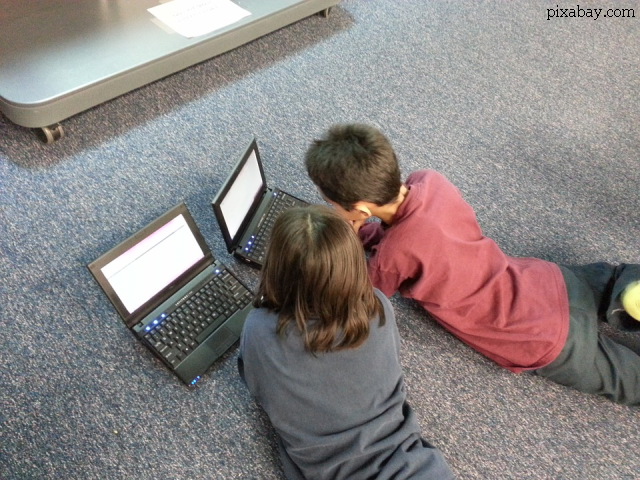The dangers facing the little ones in the virtual world
As a result of isolation and pandemic restrictions, children spend more time than usual on the internet

România Internațional, 17.02.2021, 12:22
The isolation and restrictions imposed by the pandemic, which have moved classes from school to the online environment, have forced children to spend more time than usual on the internet. This situation has had many unpleasant consequences, as revealed by a recent study conducted by the non-governmental organization “Save the Children” Romania. Compared to the situation before the state of emergency, now 59% of Romanian children have the impression that they spend too much time on the internet or using digital devices. Also, for 22% of them, the pandemic period meant facing more situations on the Internet that disturbed them or made them believe that they should not have discovered that content.
Parents fears have also intensified, with 55% of them being more concerned than in the past that children could come into contact on the internet with adults trying to exploit or sexually abuse them, while 48% are more concerned that their children may be the victims of inappropriate messages. Some of these conclusions were drawn from complaints that “Save the Children” received through an online tool dedicated to reporting harmful internet content. Available on the oradenet.ro website, the esc_ABUZ form led to an alarming conclusion, as we learn from Andreea Hurezeanu, the coordinator of the online security program for minors, run by the Save the Children organization:
“More than 1,500 complaints were received in 2020. And 72% of them were about materials showing sexual abuse of children, child nudity or children in sexualized poses. As in previous years, in an overwhelming proportion – around 85% – the victims were female. And in terms of age, in 8% of the cases the children were up to 5 years old, and 76% were children between 6 and 10 years of age. The 11-14 age bracket accounted for 14% of the reports, and 2% focused on adolescents between the ages of 15 and 18.
The monitoring did not focus on social media in particular. It took into account all websites accessed by children and then reported as being too accessible to the minors that navigate the internet. Given this situation, how can parents protect their children? Andreea Hurezeanu makes some recommendations:
“In most cases, parents are not aware that there are parental control programs that help children access content that is appropriate for minors. Because of that, all kinds of images and videos that are not suitable for children, but which still exist on the internet, happen to be accessible. Thats why its very important for adult users to report when they find such disturbing content. Especially in the context in which the pandemic forced us to spend more time surfing the internet, the excessive time spent by children in the online environment is a first risk. As they spend more time on the internet, they may face situations such as cyberbullying (harassment or aggression on the internet), sexting, internet addiction, access to fake news, etc. All of these are dangers to which children can be exposed on the internet. For example, cyberbullying is extremely common through online harassment, verbal aggression, and Romania holds one of the leading places in the EU in terms of cyberbullying among children.”
In addition to parental control programs and post-factum complaints, parent-child communication and the cultivation of childrens trust in adults are other ways to reduce the high risks of surfing the Internet. Andreea Hurezeanu once more:
“First and foremost, we advise parents to maintain an open communication with their children. This is the main advantage that parents have in managing the relationship that minors have with what happens on the internet. If there is an open relationship and a permanent communication between the child and the parent, the child will have the courage to tell their mother, father or other people they trust about the unpleasant events they witnessed on the internet. Besides setting up a parental control program, there is a need to maintain an open parent-child relationship, gather information about the risks on the internet and discuss these dangers with minors. Also, through a friendly relationship with children, parents can help them overcome difficult and unpleasant moments caused by certain problems that arise online.”
Precisely to reduce the number of such problems, “Save the Children” has launched the “Unskippable Stories” information campaign. The campaign features a series of six audio-video clips depicting conversations between abusers and victims, inspired by real-life situations. They will be broadcast online, on various social networks, in the form of short messages, which cannot be deactivated or ignored, just as the stories of children victims of internet abuse cannot be overlooked. (MI)






























